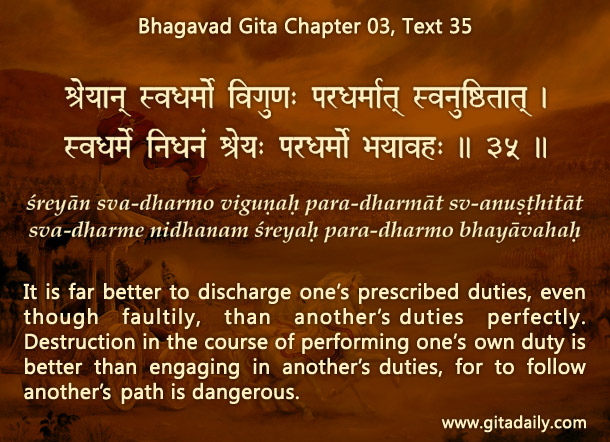Seeking to understand our nature won’t box us in it will reveal the box we are already in
Some people resist any system of categorization of human nature. They feel, “This will box me in.” While their concern is understandable, it is based on the misconception that we can stay out of boxes if we avoid any system of categorization. It’s akin to saying that if we don’t identify the germ we are infected by, we won’t be infected at all.
We all have a psychophysical nature with which we are born. That nature comes from the way we have acted in our previous lives. And this nature shapes our actions, often without our conscious awareness. The Bhagavad-gita states that we are more or less forced to act according to our nature (03.34). If we deny our nature, we are still forced to act according to that nature, even if we imagine we will be better off acting in some other way (03.35).
Consider a time-tested system of classification of human nature such as the fourfold classification given in the Gita — ministerial, managerial, mercantile and mechanical. Such a system serves as a map of our inner world. The map doesn’t make the territory the way it is; it just makes us aware of how the territory is. Without the map, we will be caught unawares when we face the inevitable pitfalls in our inner terrain. The map equips us in our inner journey toward self-understanding.
Of course, if someone uses a system of classification to force a particular identity upon us, an identity that isn’t in harmony with our nature, that would constrict and disempower us. But a system for better self-understanding can empower us when it reveals the reality and helps us harmonize with that reality.
Think it over:
- What is wrong with resisting the categorization of our nature?
- What determines our nature? And how does it determine our actions?
- How does understanding our nature help us in our inner journey?
***
03.35 It is far better to discharge one’s prescribed duties, even though faultily, than another’s duties perfectly. Destruction in the course of performing one’s own duty is better than engaging in another’s duties, for to follow another’s path is dangerous.
To know more about this verse, please click on the image
Explanation of article:
Podcast:


Very nice